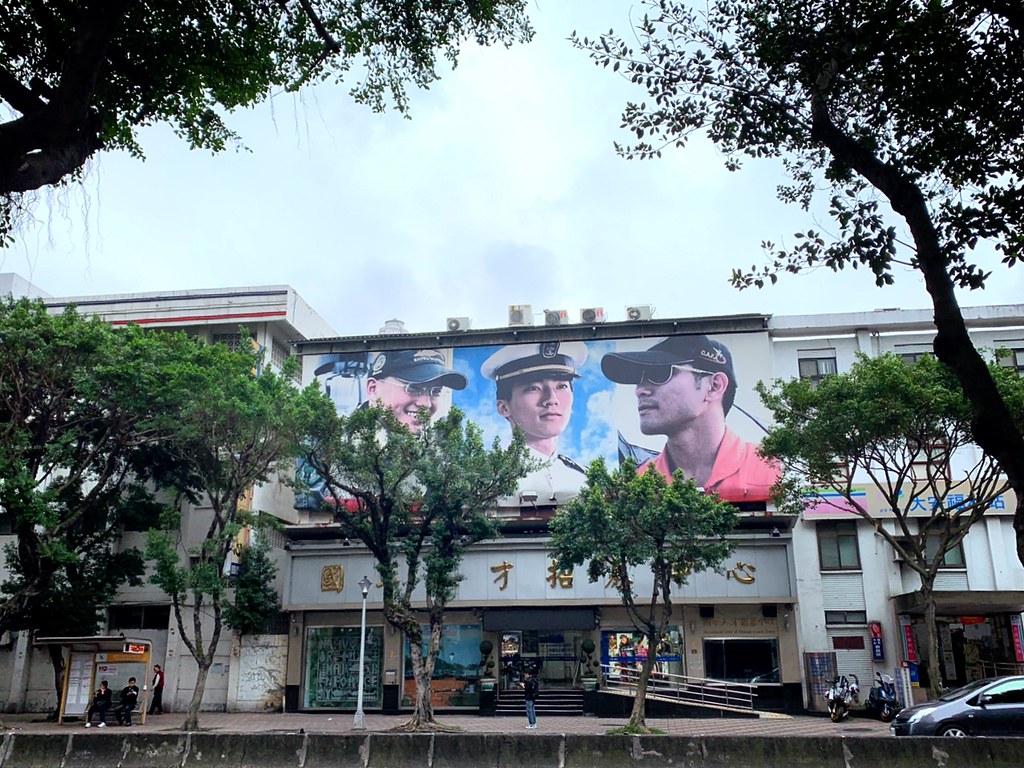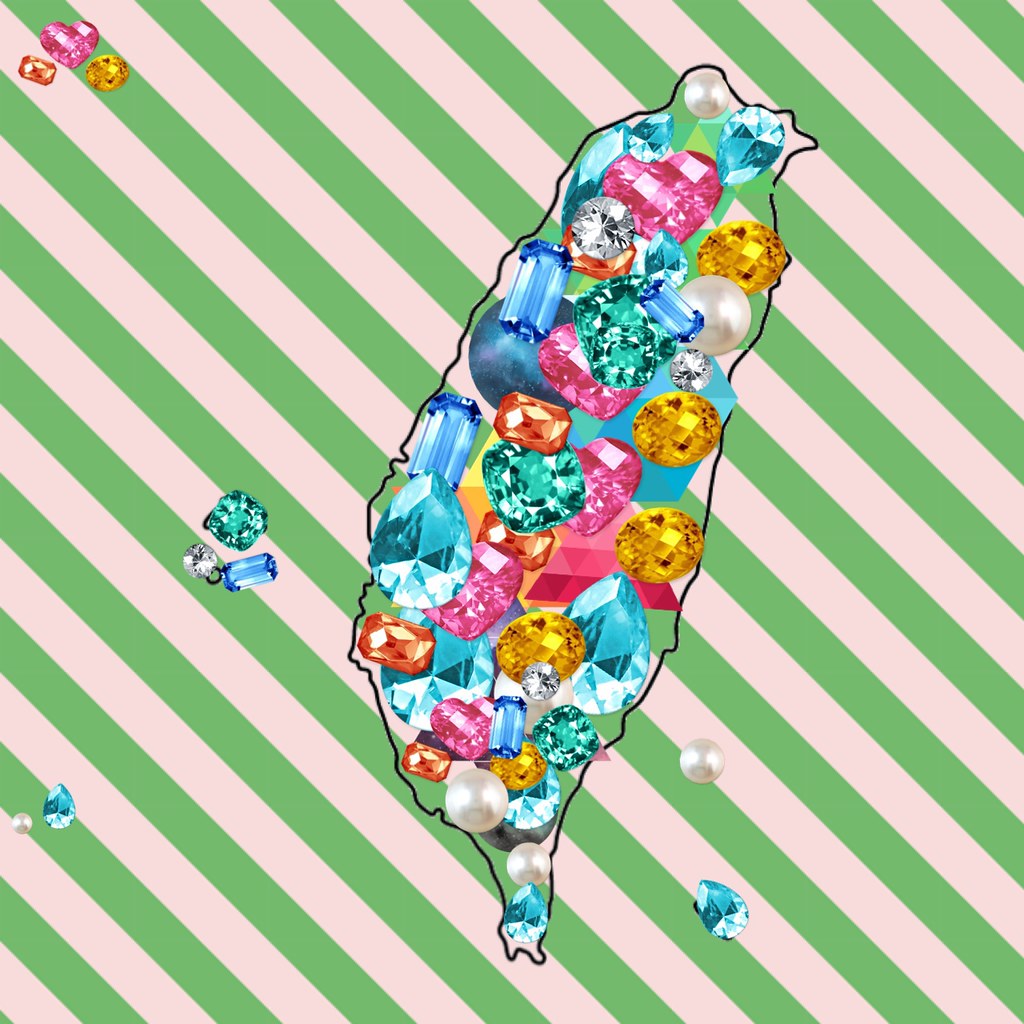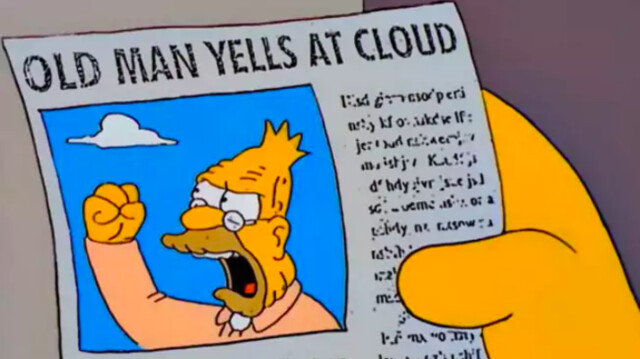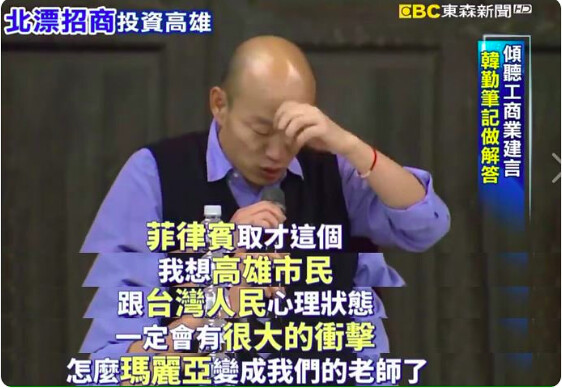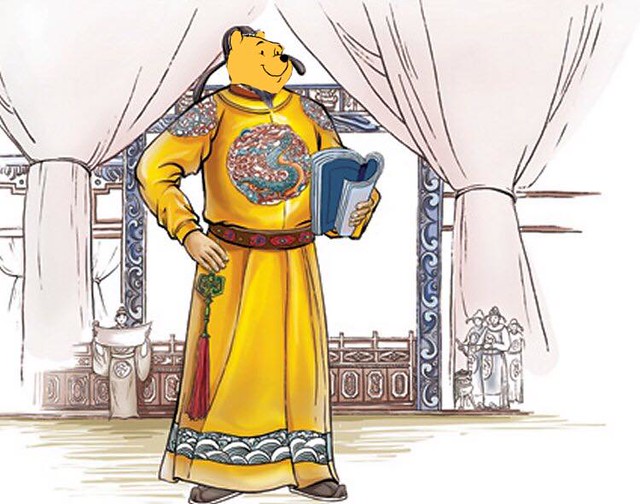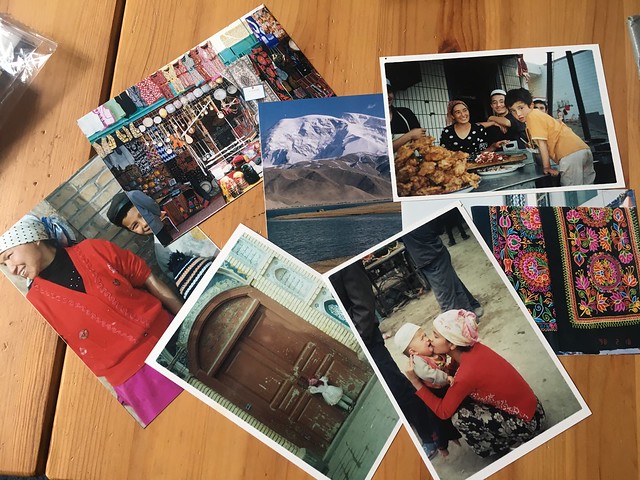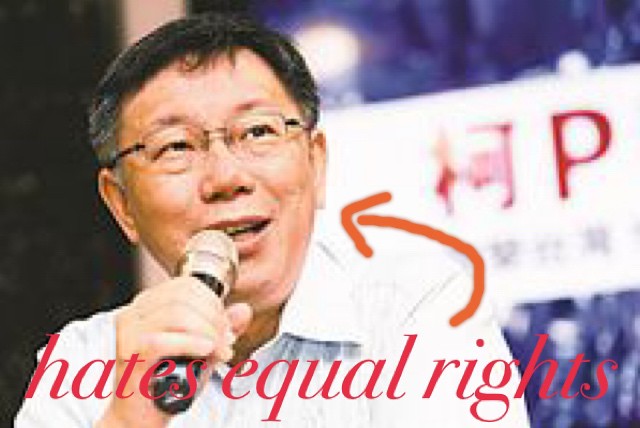 |
| doctored image (test and arrow mine) from Wikiquote |
So, I've tried to be a Very Good Blogger these past few months by keeping my swearing and general foul-mouthedness in check, so I think I've earned this one.
Because I think it's most appropriate to the story to do an end-run over the serious-faced analysis about what it means and what are Ko's intentions exactly and just call it like it is without any of the wannabe pundit BS, I'm just gonna say it straight: Taipei Mayor Ko Wen-je is a homophobic, sexist buttclown.
The misogyny has been amply covered, because there is a lot of it. I won't re-tread on that - links to his previous comments about women are covered in the link.
The gay-hating, though? That's new, so let's rumble.
According to Liberty Times (link in Mandarin), while in the USA - which was its own whole drama thing - Ko commented that he voted against marriage equality referendum in the last election, but that he "allowed Taipei to hold the Pride Parade" which shows that "Taipei City is very tolerant".
Don't let his talk about "tolerance" and Pride fool you. First, that's a basic human right (the freedom of assembly) in Taiwan. Oh, thank you so much, Mayor Ko, for giving LGBT people the right to freedom of speech that they already had anyway! Barf.
Second, "tolerance" is not enough. Equal rights and tolerance are both necessary: without tolerance, equal rights can ring hollow as people, even when exercising their rights, may face discrimination. But without equal rights, merely "tolerating" someone else's existence doesn't confer upon them the dignity of actual equal status.
Voting against marriage equality is an anti-gay, anti-equal rights act. Simply put, if you do not think same-sex couples do not deserve the same rights that opposite-sex ones enjoy, you do not believe in equal rights, and you specifically want to deny them to LGBT people. That is a fundamentally anti-gay viewpoint. There's no other way to put it. The two cannot be reconciled. You can talk all you want about "being tolerant" but if you want to deny a group a human right, that is not "tolerant". You are telling opposite-sex couples that they shouldn't be alowed to inherit from each other, make medical decisions for each other, have visitation or next-of-kin rights, adopt, be on each other's insurance or any of the other things opposite-sex couples can do just because they have different junk.
That's anti-equality. Period. There is no "loving" or "decent" way to interpret this.
What's more, "but I allowed Taipei to have Pride!" is a weak-kneed cop-out. Tolerating someone's existence without open comment or harassment and letting them march down the street, but wanting to keep them second-class citizens, is simply not good enough, and is not actually tolerant. Tolerance means accepting that people who aren't like you are human too and therefore have the same goddamn rights you do, period.
Anything less - oh it's so nice, we're so nice to you, you can march and walk and wear your costumes! - is not good enough. There is no excuse. There is no cover. There is no sappy, manipulative "love the sinner" or "acceptance" or "lifestyle" rhetoric.
Either you believe in equal rights or you do not, and Ko Wen-je does not believe in equal rights.
I also wonder what he hoped to accomplish with these comments - his most supportive base are the youth, who are also overwhelmingly pro-equality. Did he expect that he could say this to win older anti-equality voters, but keep the youth with his comments about Pride?
I hope not, because that would mean he thinks the youth are stupid. I certainly hope they don't let this go.
Confusingly, this comes after addressing the right-wing Heritage Foundation touting Taiwan's social values as akin to those of the West (marriage equality is common in the West now) and talking about elections as social movements toward change. To a bunch of right-winters. Huh.
Which...okay, if you think that, why did you vote against the goals of the biggest social movement since the Sunflowers, and arguably the most progressive and Western-aligned, which asked for the most evolution from Taiwanese society?
Because you're a jack-bucket who says whatever and doesn't care, that's why. You proved that with women; now you're just adding LGBT people to the roster. Screw you.

